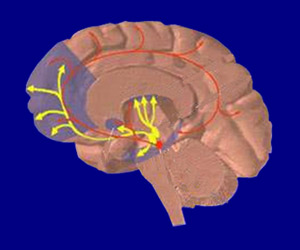New research has revealed that the use of cognitive-behavioural therapy to treat tics in Tourette syndrome may be as effective as and even superior to medication in certain cases.

"This discovery could have major repercussions on the treatment of this illness. In some cases, the physiological measures could allow for the improvement of the therapy in order to tailor it to a specific type of patient," states Dr. Marc Lavoie, certified researcher at Fernand-Seguin Research Centre of the Louis-H. Lafontaine Hospital and with the Psychiatry Department of Université de Montréal, who conducted this study with his PhD student Tina Imbriglio and his clinician collaborators, Dr. Kieron O'Connor, psychologist, and Dr. Emmanuel Stip, psychiatrist.
Tourette syndrome is a complex neuropsychiatric disorder characterized by motor and vocal tics that worsen during childhood and reach a peak around the age of 11. The condition affects between 0.05 and three percent of children of school age and in certain cases, can persist into adulthood.
The research team invited two groups to take part in the study:
- One group of 10 adults affected by Tourette syndrome
- Another group of 14 adults matched for age and intelligence with no neurological or psychiatric problems.
"On the one hand, therapy leads to cognitive restructuring, and on the other, to behavioural and physiological modifications. This promising study is the first to demonstrate the physiological effects of cognitive-behavioural therapy for patients with Tourette syndrome. However, other studies will need to confirm these results using a larger sample," added Dr. Lavoie.
Advertisement
Source-Eurekalert









